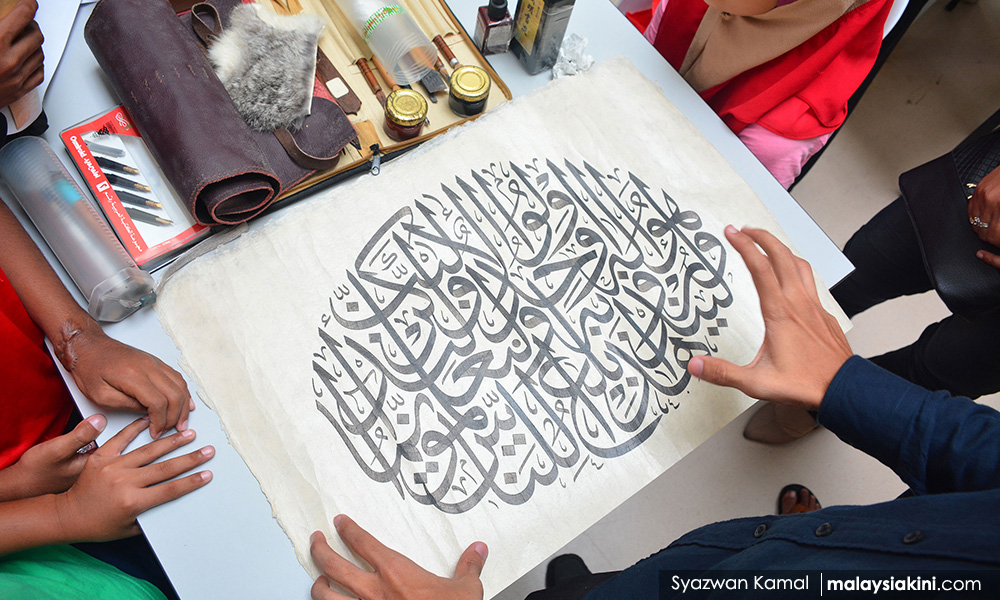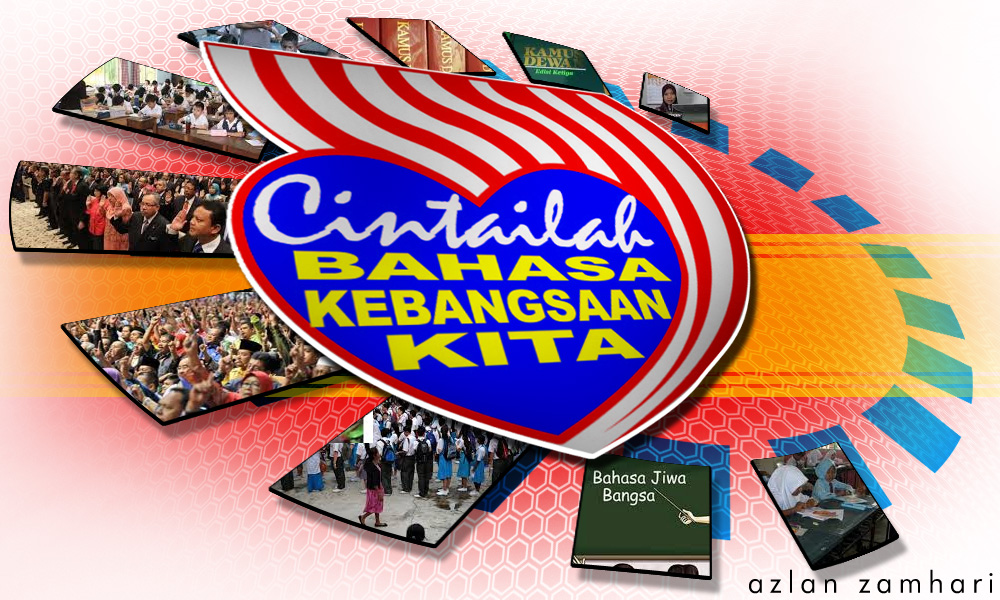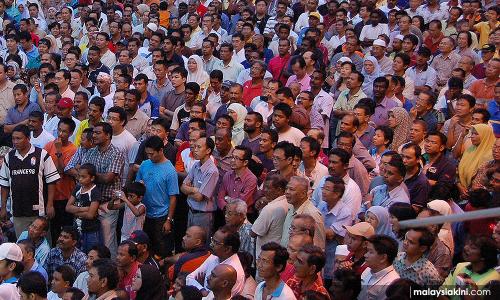Embracing our diverse heritage
MP SPEAKS | 2019 was a polarising year for Malaysia.
Our “culture war”: Malay against non-Malay, Muslim against non-Muslim - showed no sign of abating and indeed, quite frankly, was exacerbated.
One of the main bugbears has been the proposed introduction of the teaching of Jawi khat as part of the Malay-language curriculum.
This, unfortunately, has caused much controversy.
There have been passionate, even vehement, arguments for and against the move.
Certain irresponsible parties have sought and indeed, gained much political capital from it.
Jawi and our heritage
To be sure, Jawi is an important part of our national history—something that many Malaysians are not aware of.
The Pemasyhuran Kermerdekaan—our Declaration of Independence in 1957—was written exclusively in English and Jawi script for Malay with no romanised Malay version.
Ironically, many Malays today don’t understand it very well. While I can comprehend Jawi, I too do not write or read it fluently.
That’s a shame because major historical documents from our past are found in Jawi.
Most of us have heard about Sejarah Melayu (the Malay Annals) or Hikayat Hang Tuah – all manuscripts written in Jawi.

But there were other works, frequently overlooked by western orientalists as it did not fit the stereotype that all Malay literary works were purely of fantastical myths and legends.
For instance, the Taj-us Salatin manuscript, which was composed by Bukhara al-Jauhari in 1603 Aceh. It was also known as Mahkota Segala Raja-Raja and came out half a century before Englishman Thomas Hobbes’ Leviathan was published.
This was one of the earliest documents in the world that touched on the idea of constitutional law and a social contract that was the focus of Leviathan, talking about the spiritual covenant between God and human beings, as well as relations between a ruler and his or her subjects.
Taj-us Salatin was prized in the Johor and Kedah courts as a reference to the Sultan and nobility.
Another famous work written in Jawi is Bustan-us Salatin by Nuruddin ar-Raniri, focusing on statecraft but also a pioneering book on universal history.
The Jawi issue, like it or not, is just a symptom of how badly skewered our thinking on race and religion has become—especially when one views education and language through these lenses.
The importance of Malay language
There are not a few Malaysians, both Malay and non-Malay, who feel that the national language is unimportant.
But this is a short-sighted view. Malay is not only a national but regional lingua franca.
It plugs us into the Nusantara (ie the wider maritime Southeast Asia) and is relatively easy to learn.
Singaporean government officials and politicians have spoken to me of their regret at how Malay, which is their national language, has become almost totally abandoned in their public life.
Lee Kuan Yew wrote in his memoirs: “At home, I spoke English to my parents, Baba Malay - a pidgin Malay adulterated with Chinese words - to my grandparents, and Malay with a smattering of Hokkien to my friends, the fishermen’s children.”

Lee too recalled how in the 1950s, pasar Malay was the best medium to speak in political campaigns as it was the most widely understood language in Singapore.
But today, while their national anthem and military commands are in Malay, the majority of Singaporeans can barely speak it.
This has and is robbing them of a deeper engagement with Malaysia and Indonesia, the latter being Southeast Asia’s largest economy.
The same thing mustn’t happen to us.
But that won’t happen if the market for Malay content doesn’t increase.
And there is no way for that to occur, or for Malay to become richer and less exclusively tied to one race or religion if the non-Malays themselves won’t embrace it.
Moreover, it robs them of insight into the minds of the Malay community, making the task of national integration more difficult.
Let us not forget, the Bumiputeras of Sabah and Sarawak too, while having their own languages and a huge Christian population, Malay in their interactions as well as worship.
I have made it a point to send my son to a national school, where the medium of instruction is mostly in Malay, which is his heritage.
And he still speaks to his friends in English.
Embracing mother tongue languages
Still, mother tongue education is also important. This applies to not only Malay, Mandarin and Tamil, but also the languages of the other ethnic groups.
Recent studies in southern Thailand have shown that the children there benefitted when they learnt their mother tongue from a young age, in this case, the Pattani Malay dialect.
They not only master academic subjects better, but they even become more fluent with Thai compared to children who were forced to learn everything in the Thai medium from the beginning.
The issue of minority languages weakening the status of Malay does not arise.
The vast majority of our population has at least a basic command of the Malay language, whether in the form of bahasa pasar, or regional dialects.

My point is that it is important that everyone should be able to speak Malay, and indeed, we are getting there, however haphazard the process.
But I find it rather ironic that some of the most virulent voices on this issue, including those taking a racist stance on the Jawi and Malay issues, have children who can’t speak Malay simply because of their elite status.
Upholding the national language - as well as nation-building in general - does not require and indeed, cannot happen, at the price of the humiliation or subjugation of minorities.
Knowing one another
What is needed is trust and goodwill on both sides. We need leaders who have the political will and credibility to bring it about.
My primary education was at the La Salle School of Petaling Jaya. Back then, there was (and still is) a huge cross on one of its buildings - and beneath it, the school’s name was written in Jawi.
In fact, there were crosses in each of our classrooms and no one made a fuss about it.
My father, who comes from a family of Islamic scholars, wanted his children to be able to converse in English fluently, and to mix with different races - so he ended up sending us all to mission schools.
The Islamic injunction of lita’arafu, or getting to know one another is crucial, especially in a multicultural society.
And it doesn’t mean compromising your faith, but simply that you understand the beliefs of others.
In my constituency, Setiawangsa, a surau hosted a Chinese New Year celebration last year.
This year, I hope to hold a multi-faith buka puasa with leaders from all religious communities.
It is important that all schools host more cultural programmes to foster mutual understanding.
The government should work hard to make national schools the school of choice in the medium and long run, but in the meantime encourage cross-cultural exchanges between national, vernacular, religious and even private and international schools.
The government, schools, NGOs and other bodies can play a hand in cultivating it.
If we carry on living in silos, we will end up always living in fear of one another.
NIK NAZMI NIK AHMAD is MP for Setiawangsa, chairperson of the Defence and Home Affairs Parliamentary Select Committee and PKR chief organising secretary.
The views expressed here are those of the author/contributor and do not necessarily represent the views of Malaysiakini.
RM12.50 / month
- Unlimited access to award-winning journalism
- Comment and share your opinions on all our articles
- Gift interesting stories to your friends
- Tax deductable
